
World
20:15, 09-Jul-2018
Cashing in on cannabis: Blueprint to restructure Lebanon's economy includes capitalizing on illicit marijuana industry
Updated
19:41, 12-Jul-2018
Nadim Diab
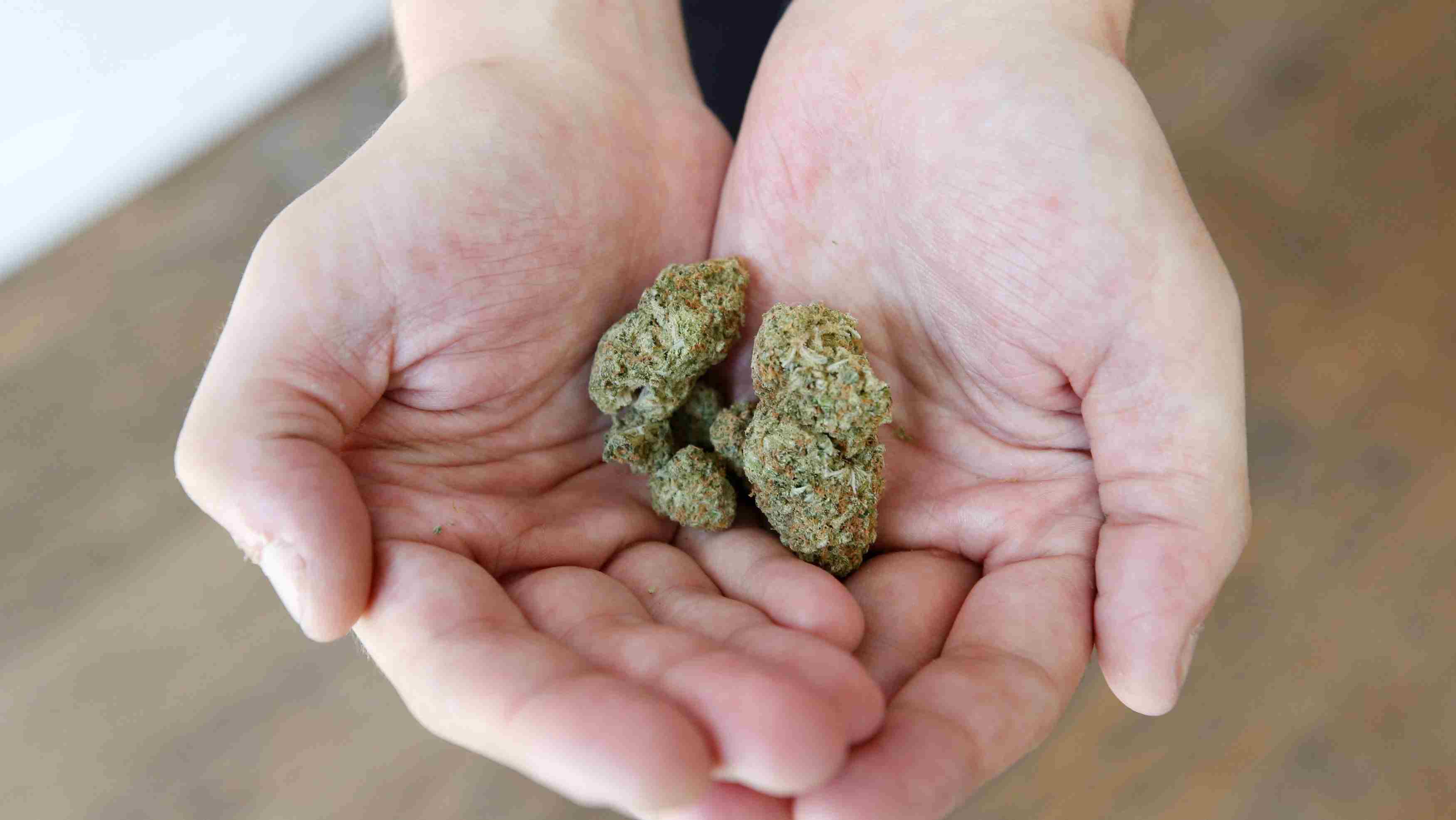
Lebanon's flourishing cannabis industry could hold the key to propelling the country's economic growth rate high, according to management consulting firm McKinsey. But there's a caveat – it's illicit.
The New York-based company has devised a plan to help Lebanon restructure its flailing economy and find new growth engines, as it tries to tackle rising debt and unemployment levels and wean itself off remittances. McKinsey recommended quick fixes for the world's third most-indebted country to avert a deepening economic crisis, including taking part in the reconstruction of neighboring war-torn countries Syria and Iraq, revitalizing the tourism sector, and cashing in on two homegrown crops, namely avocado and cannabis.
Opening the market for cannabis under the patronage of the government, however, is easier said than done. The spiky-leafed plants are illegal in Lebanon, with cultivation, possession and consumption of cannabis punishable by law.
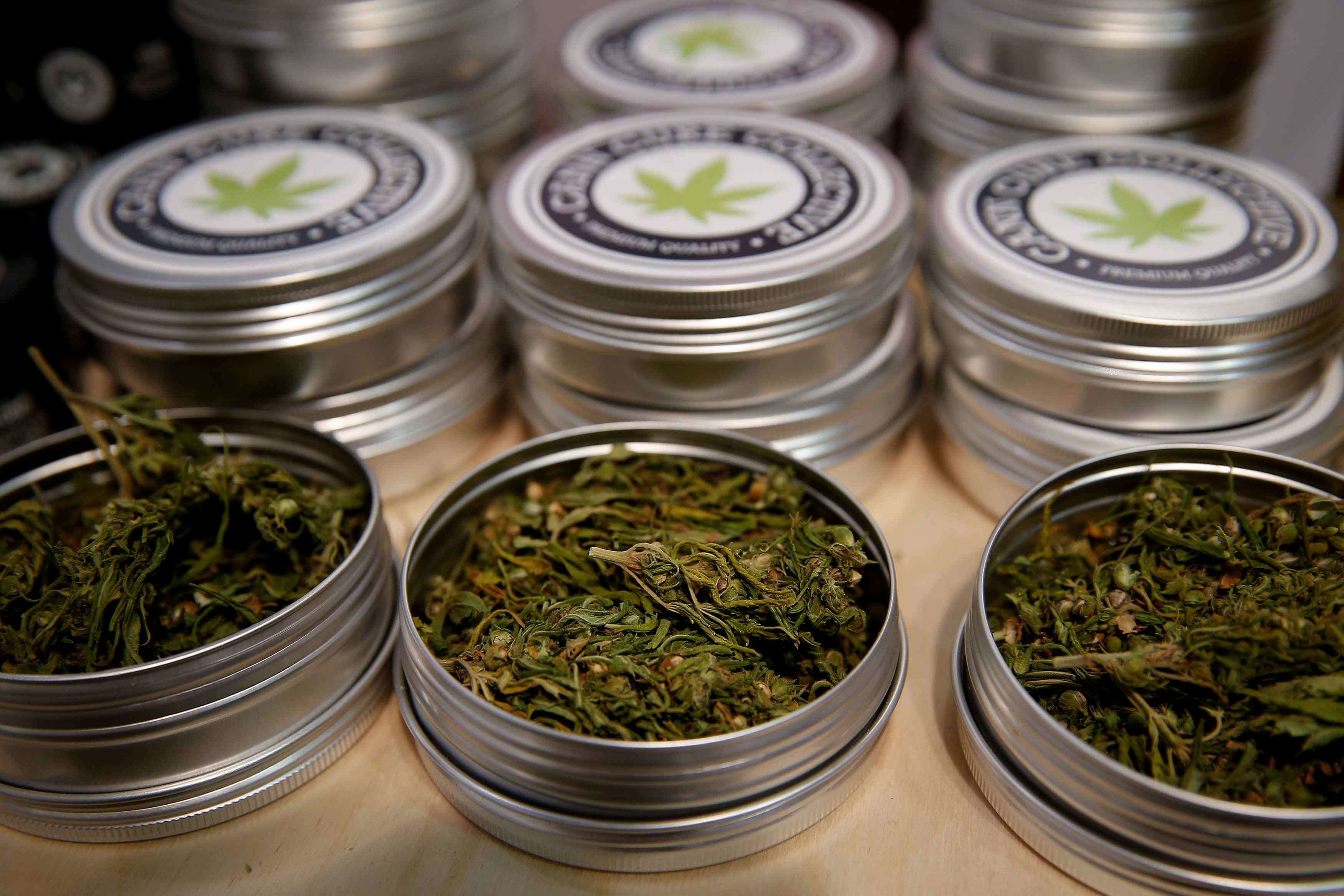
Cans with cannabis buds are seen at the Balkannabis Expo 2018, in Athens,
Greece, June 2, 2018. /Reuters Photo
Cans with cannabis buds are seen at the Balkannabis Expo 2018, in Athens, Greece, June 2, 2018. /Reuters Photo
Big barred business
Marijuana is Lebanon's best kept open secret. The tiny Mediterranean country is the world's fourth largest producer of cannabis, according to a 2017 report by the United Nations Office on Drugs and Crime (UNODC), after Morocco, Mexico, and Paraguay, with crops covering a 3,500-hectare area.
It's a profitable enterprise, where every gram of hash produced locally is reportedly sold for 15 US dollars abroad, but one which does not benefit the government coffers. This, however, could change if authorities act upon the suggestions of the consulting company and capitalize on the country's homegrown happy herb, reportedly one of the world's best – even by Lebanese officials' admission.
Caretaker Economy and Trade Minister Raed Khoury told Bloomberg over the weekend that Lebanon could legalize the cultivation and export of marijuana for medicinal use.
"The quality we have is one of the best in the world," Khoury said, noting that the lucrative enterprise could bring in one billion US dollars. For a country whose GDP stood at 47.5 billion US dollars in 2016 and is growing at a rate of 1.8 percent annually, that's big bucks.
Not a first
Khoury's remarks echo that of other politicians and officials in Lebanon, who in recent years have called for the regulation of the cannabis market to help generate extra income.
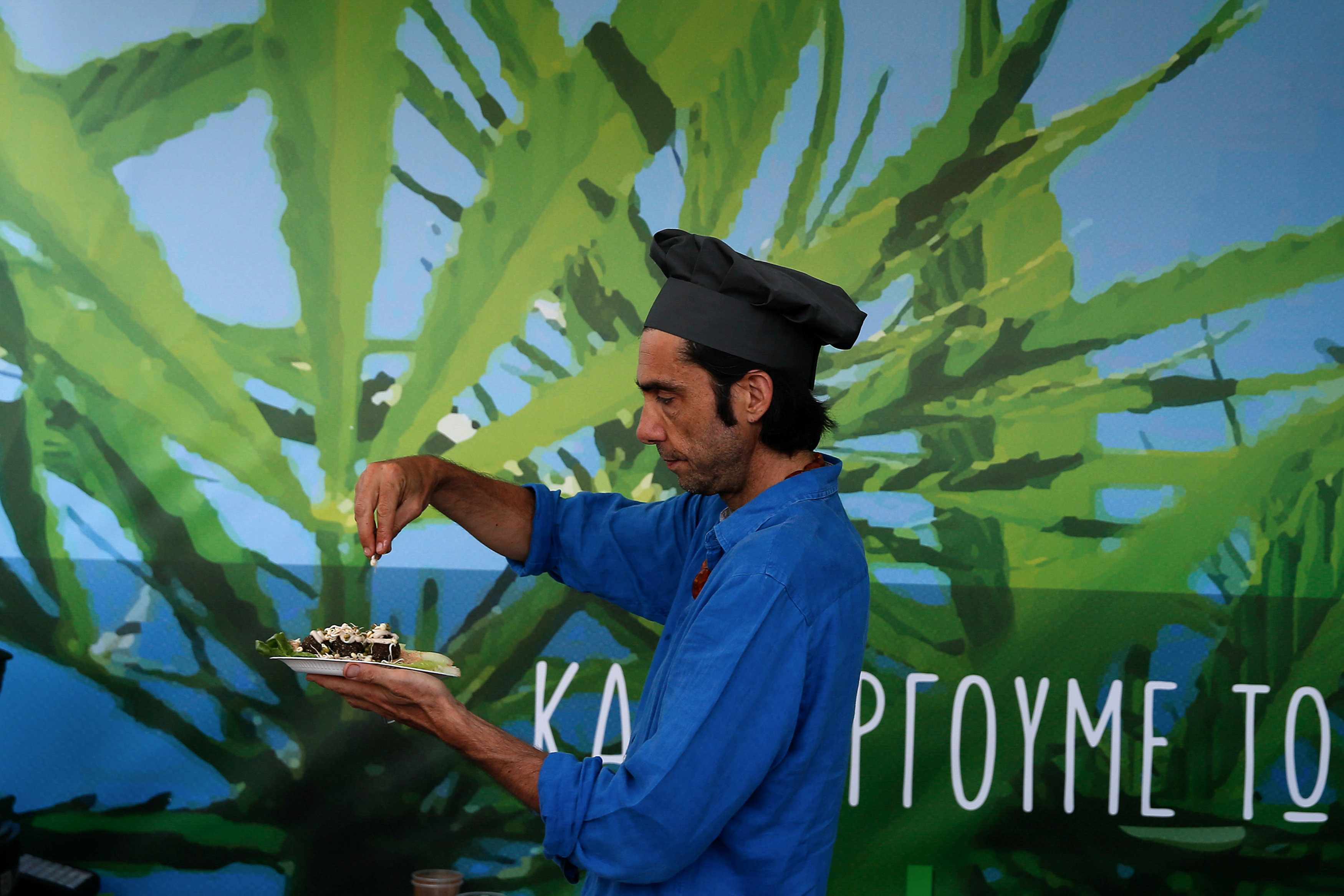
A man prepares a cannabis-based plate during the Balkannabis Expo 2018, in
Athens, Greece, June 2, 2018. /Reuters Photo
A man prepares a cannabis-based plate during the Balkannabis Expo 2018, in Athens, Greece, June 2, 2018. /Reuters Photo
Former Lebanese Minister of Tourism Fadi Abboud floated the idea of legalizing the exportation of cannabis for medicinal purposes as far back as 2010, telling Al-Araby Al-Jadeed (The New Arab) media outlet in 2014 that he reiterated the proposal every time the country's budget was in the making.
The same year, leader of the Progressive Socialist Party Walid Jumblatt weighed in on the controversy, asking on Twitter for Marijuana to be "legalized so that the people of the Bekaa [Valley] could have a decent income." Jumblatt was referring to the region in eastern Lebanon along the border with Syria where marijuana is grown next to vineyards and potato fields in bright sunshine by the roadside.
Chronic conundrum
Bekaa is a hotbed of cannabis cultivation despite eradication campaigns from Lebanese authorities. The fertile land benefited from an export route in its backyard through Syria and weakened law enforcement in recent years after violence erupted in the neighboring country.
The government's repeated attempts to weed out the illicit industry led at times to armed clashes between security forces and machine gun-wielding growers.
Incensed farmers say they're victims of failed government policies, growing the plant by force, not by choice, in the absence of equally lucrative alternatives. Cultivating one dunum, a tenth of a hectare, of cannabis costs no more than 150 US dollars, less than a field of wheat, according to Reuters, which reported that each dunum brings in more than 3,000 US dollars for farmers. Other sources put the yield of a parcel of land of the same size as high as 15,000 US dollars.
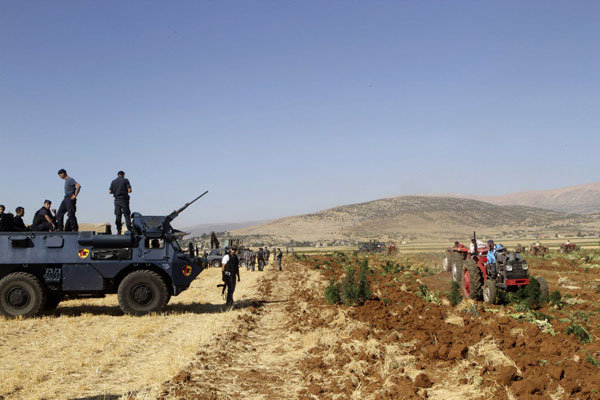
Anti-riot police secure an area as tractors uproot hashish plants in Boday village, near Baalbek city, Lebanon, on July 23, 2012. /Reuters Photo
Anti-riot police secure an area as tractors uproot hashish plants in Boday village, near Baalbek city, Lebanon, on July 23, 2012. /Reuters Photo
But opponents to the idea of legalizing cannabis can't sympathize with farmers. They cite religious reasons for their opposition, and express doubt over the extent of oversight a government crippled by entrenched corruption and cronyism, such as Lebanon's, would have on the sector.
In a telltale sign of how flourishing cannabis trade is in Lebanon despite efforts to nip it in the bud, the country's security forces made the biggest-ever drug bust in the country's history last month, seizing 15 tonnes of hash from a warehouse in the Bekaa village of Britel which were prepared for a destination overseas.
Dissecting the drug
The global medical marijuana market is expected to grow from 8.28 billion US dollars in 2017 to 28 billion US dollars in 2024, at a compound annual growth rate (GAGR) of 19.1 percent in the 2018-2024 period, according to Energias Market Research. Demand is expected to be driven by increased awareness about the therapeutic benefits of the drug, and looser regulations around the world.
Lebanese lawmakers might not be swayed to jump on the bandwagon anytime soon, but researchers in the country have already expressed interest in digging into hashish's medicinal value.
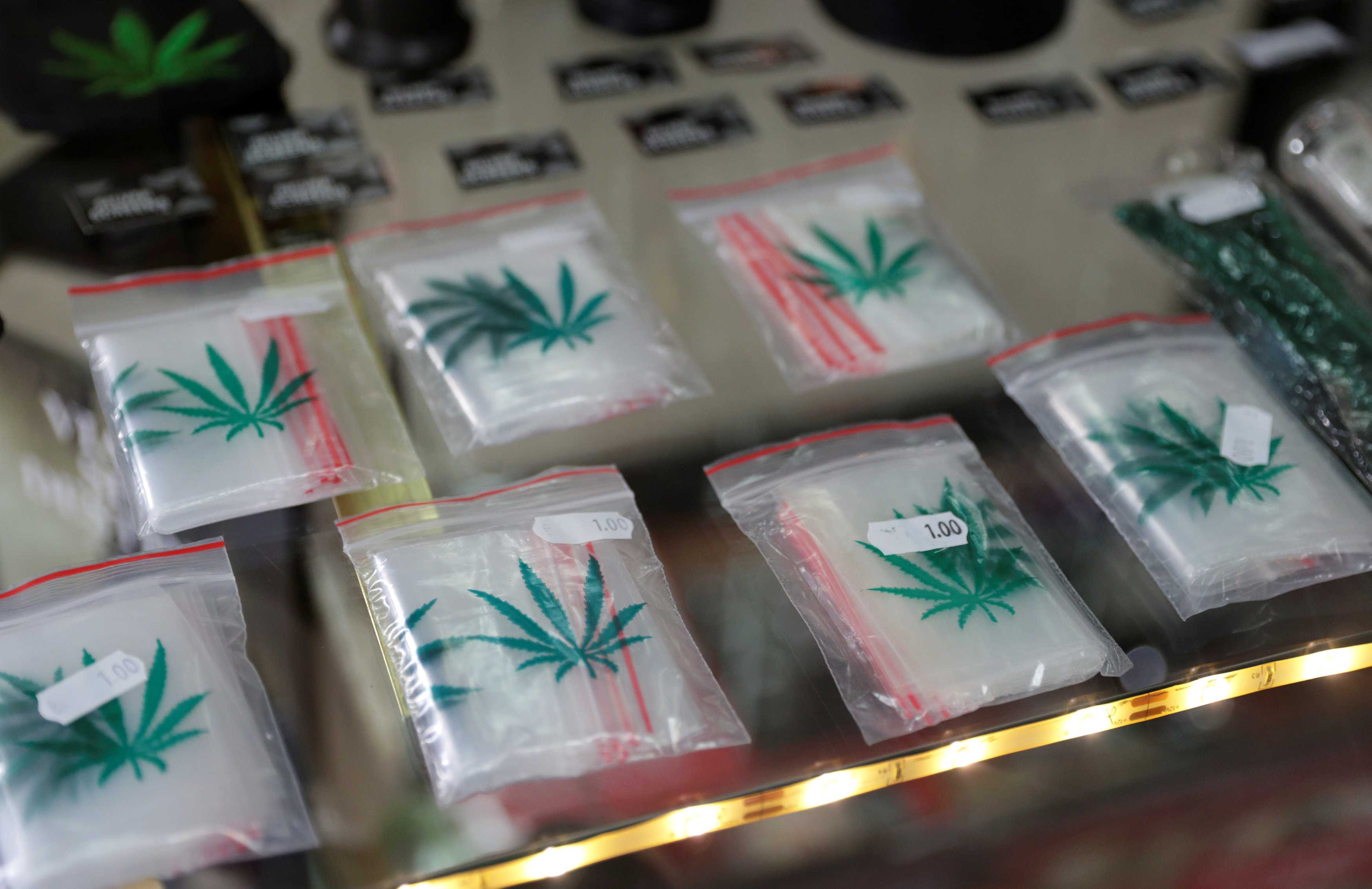
Cannabis storage bags are displayed at Triparte shop in downtown Lisbon,
Portugal, January 10, 2018. /Reuters Photo
Cannabis storage bags are displayed at Triparte shop in downtown Lisbon, Portugal, January 10, 2018. /Reuters Photo
In late May, the Lebanese American University (LAU), one of the top academic institutions in Lebanon, announced it is establishing the Medicinal Cannabis Research Center, in the first initiative of its kind in the country and the region. The facility will study the pharmacological characteristics and potential medicinal value of Lebanese cannabis, which is said to be resistant to drought and high temperatures.
"We are awaiting the creation of a legal framework within which we can proceed, with the full support of the Ministry of Public Health," said Professor Mohammad Mroueh of LAU’s School of Pharmacy.
Highlights of the "national economic plan" by McKinsey were presented to the Lebanese President Michel Aoun last week, but the 10,000-word document need to be greenlighted by the country's new cabinet once it is formed.
(Cover: An employee holds marijuana while posing in a photo illustration at a dispensary
in Ottawa, Canada, June 20, 2018. /Reuters Photo)

SITEMAP
Copyright © 2018 CGTN. Beijing ICP prepared NO.16065310-3
Copyright © 2018 CGTN. Beijing ICP prepared NO.16065310-3